Health Care Practices Prepare for Cyber Threat Onslaught.
- Tommy Wald

- Oct 12, 2021
- 3 min read
Updated: Jun 6, 2022
AUSTIN, Texas (October 8,2021) - With health care organizations facing increasing cybercrime attacks this year, most are having to take a proactive approach for strengthening their cybersecurity measures to protect hospitals, clinics and patient data.
Their concerns are valid and backed by recent statistics indicating the problem is only getting worse. The first half of 2021 alone saw an increase of breaches by 27% over 2020, and a jump of 185% for those people affected by these healthcare data breaches. And a recent report by the US Department of Health & Human Services indicates that healthcare is the most targeted sector, with ransomware being responsible for nearly 50%.
It’s no wonder that medical group practice managers and administrators have taken such a keen interest in understanding how to better protect their clinics’ computer networks and patient data.
Understanding this challenge, a Texas chapter of the Medical Group Management Administrators (MGMA) focused on this topic at their September meeting in Austin. The MGMA is a national association of more than 60,000 medical administrators and executives providing professional development, data insights, networking events and additional resources to keep members informed. The Texas MGMA is a statewide affiliation with several chapters, including the Capital City chapter in the Austin Metro area.
The special speaker for this meeting was Tommy Wald, CEO of Austin’s RIATA Technologies, a cybersecurity and technology consulting firm. Wald discussed the steps health care organizations should take to guard against cyberthreats, according to the specific guidelines as published by the US Department of Health and Human Services.
These guidelines were developed under the auspices of the Cybersecurity Act of 2015 resulting in CSA 405(d), titled Health Industry Cybersecurity Practices, and provides an established set of recommended actions for improving and updating cybersecurity practices. According to Wald, “Health care organizations must update their technology practices and solutions to thwart these increasing cyber threats. There are so many more ways that hackers are gaining access and health care organizations are particularly vulnerable. The CSA guidelines are a necessary step for all health care clinics, doctors and dentists.”
Agreeing with Wald’s perspective, Matt Thompson, president of the local Texas MGMA Capital City chapter stated, “Tommy Wald gave an important and timely presentation to the Capital City Medical Group Management Association on Cybersecurity. This topic is important to Medical Group Managers from an operations and compliance perspective. Tommy outlined the best practices to protect our patients’ information and limit the operational damages from ransomware attacks.”
Nationwide, the focus on additional cybersecurity protection is apparent and necessary given the recent headlines of ransomware and data breaches of confidential data. Health care organizations are particularly vulnerable and targeted by hackers to steal personal medical data of patients that can be used for extorting more money from the providers. This personal medical data is now worth more than stolen credit cards on the black market. While a credit card number or social security number can go for 25 cents to a dollar, a medical record by itself can go for up to $1000 on the dark web, based on this report by NBC.
The threat of these increasing cybersecurity attacks was not lost on this audience of practice administrators from various health care practices; several had previously been victims. The Texas MGMA helps members mitigate these threats by promoting education and networking opportunities for professional administrators and leaders of medical group practices. More can be found at TxMGMA. Copies of the presentation can be requested at info@RiataTechnologies.com.
If you're a professional organization seeking quality content and presentations on cybersecurity, IT best practices and current trends please contact TWald@RiataTechnologies.com







Comments